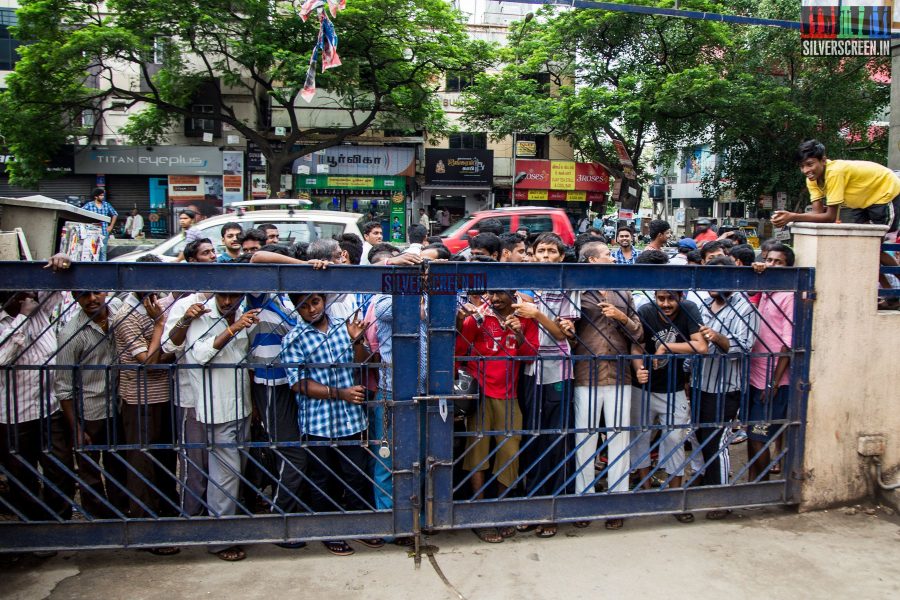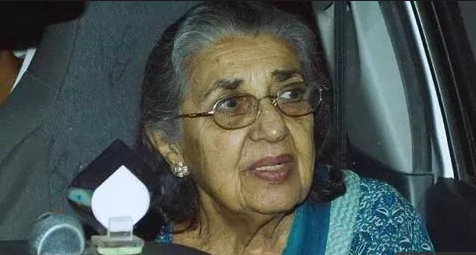The South Indian film industry will go on a strike starting today owing to a disagreement between producers and the Digital Service Providers (DSP). The Tamil and Telugu industry have confirmed their participation, and the Malayalam and Kannada producers may join them in the protest against the Virtual Print Fee (VPF) levied by the DSPs. The strike was called following the failure of talks between the two parties.
Speaking to Silverscreen about the issue, producer SR Prabhu of Dream Warrior Pictures, who had bankrolled movies like Saguni, the National Award winning Joker, and the recent Aruvi, explained the changes that occurred in film screening technology over the last 12 years. “The transition from analog to digital technology was expensive to handle. Back then, with analog, it cost us Rs 40,000 per print, and was soon raised to Rs 50,000. In the digital age, the cost was almost halved – at Rs 25,000 per print. This should have helped producers and distributors, but setting up the server and equipment needed for digital screening cost between Rs 20 lakhs and Rs 60 lakhs. Since theatres were reluctant to invest in the equipment then, the VPF was conceptualised,” he said.
Prabhu added that according to the agreement, the DSPs would install the equipment themselves, and in return, the movie projectors would pay them Rs 20,000 per movie for a period of five years in addition to advertisement revenue. It was also agreed that there would be no VPF from 2018, when the equipment cost would have been recovered in full, and the installed projectors would be owned by the theatres. The DSPs would then only charge for the service provided.
But now, Prabhu alleged that the DSPs claimed they owned the equipment.
Producers/Distributers paid vpf thinking that after certain period the projectors will be handed over to theatres. But now DSPs say, they own the equipments! How on earth a 3rd party pay for 1st party’s equipment & finally 2nd party say equipment is mine!!! ?
— S.R.Prabhu (@prabhu_sr) February 23, 2018
For a 2 crore budget film #Aruvi we have paid 50lakhs as vpf. It could have been only 15 lakhs. Out of 2.2 crore vpf we paid for 4 films in 2017, Someone ate around 1.5cr of ours. We could have made one more film with that saving!!
— S.R.Prabhu (@prabhu_sr) February 23, 2018
He also published a detailed Facebook post about the whole dispute, claiming that when theatre owners protested against the VPF, they were silenced with a slice of revenue from advertisements, and other incentives. And that despite investing around Rs 1,500 crore over 10 years, many theatres did not own their equipment.
Distributor Tirupur Subramanian, reacting to Prabhu’s post via a WhatsApp voice message, declared that while VPF amounted to only two or three per cent of a movie’s total production cost, 70 per cent of it goes towards actors’ payments. “Kavithalaya Productions, KB Films, Anbalaya, Aascar Ravi, Super Good Films, AVM are all out of cinema, not because of digital cinema,” he said, “Digital cinema might be a reason in the sense that earlier, there were only five prints of a film per area and we’d know the profit only after five years. Now, within two weeks, there are ads in papers that proclaim the success of a film. And that in turn leads to the hike in salaries of stars. Before 2000, all actors were paid the same amount for eight years. But now, actors who had come into the industry four years ago demand a salary of Rs 10 crores. But, Prabhu won’t address this issue because he’s a producer and he cannot talk about actors and technicians. I entered cinema in 1979; none of whom I began my career with are around.
Recommended
Addressing Prabhu, he further added, “You talk about wanting to be transparent; call for a meeting and establish a system that would show true box office revenue; let’s get to know the real performance of every actor’s films.”
Meanwhile, Senthil Kumar co-founder of Qube Cinema, the current DSP in South India, seemed to think that the situation is more fragile after talks, “We are optimistic that we will resolve the issue soon,” he said, speaking to Silverscreen, “we are still in discussions with producers and hope for a positive outcome.”
As for the strike that has begun today, Prabhu confirmed that it wouldn’t affect production and shooting of movies, and would only stall new releases. However, this applies to only regional movies, Hindi and English movies will release as per schedule.
*****



